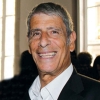
Ancien président
"Jews : The First Victims in an Anti-Semitic France" mon interview dans le Washington Post
Cette période de fêtes juives en France, rime aujourd'hui avec contrôles de sécurtié et détecteurs de métaux

By James McAuley
PARIS — The Jewish New Year is supposed to be a time of joy: apples and honey, family and faith.
But in France — home to Europe’s largest Jewish community — the High Holidays are also a time of metal detectors and full-body pat-downs, ID checks and security interviews on the streets outside synagogues.
In the France of 2016, this is the new normal. But contrary to widespread reports of a possible Jewish “exodus” from France to Israel, French Jews are still very much here, adjusting to a new, arbitrary terrorist threat that targets people not just because of their religion but even for the cafe terraces they choose.
“What’s important is to know that today — even if the Jews remain a target — they are not the only ones,” said Francis Kalifat, the president of the Representative Council of French Jewish Institutions, France’s largest Jewish advocacy organization.
For years, anti-Semitic violence has been a mainstay in French headlines: stabbings, shootings, slurs. After the January 2015 attack at a kosher supermarket outside Paris, Israel’s prime minister, Benjamin Netanyahu, urged French Jews to move to Israel.
ome did. In a community of roughly 600,000, about 8,000 decamped to the Jewish State last year, an all-time high.
Although many among that 8,000 left for reasons unrelated to anti-Semitism — economic prospects, retirement and rejoining family were all factors — the optics were terrible. In the eyes of the world, France, the first European country to recognize Jews as equal citizens, no longer seemed safe.
This was an idea widely disseminated in international media, especially in the United States. In a provocative April 2015 cover story largely focused on the situation in France, the Atlantic magazine went so far as to ask: “Is it time for the Jews to leave Europe?” Many began to think so.
But then there were the November attacks in Paris and the July attack in Nice, the deadliest on French soil since 1945.
The more than 200 victims murdered in both attacks were chosen entirely at random: teenagers who happened to buy tickets for a particular concert, children who happened to be watching fireworks on a seaside promenade.
Neither attack discriminated among victims; both posed an equal-opportunity threat. France today may not be safer for Jews, but it is now equally unsafe for everyone.
“For too long, French Jewry was denounced and disregarded by society at large, which tended to observe from faraway the victims of bombings and attacks,” says Haïm Korsia, France’s chief rabbi.
Immediately after the January 2015 attacks — on the Charlie Hebdo newspaper and the kosher supermarket — the French government created Operation Sentinel, a squadron of 10,000 heavily armed soldiers dispatched to guard sensitive sites. These included many Jewish schools, synagogues and community centers.
Almost immediately, military officials, analysts and some politicians criticized the operation as a costly expenditure without a clear mission.
“They thought they were not targets and could never be hit by such violence,” Korsia said. “But now that everyone is aware of being a potential target, I have the feeling that everyone became more responsible and caring about each other.”
In a time of nondiscriminatory attacks, a more united national community may be more than a political platitude. The mass “exodus” of French Jews never happened.
[A French synagogue is being converted into a mosque after Jews abandoned the neighborhood]
Immigration to Israel has significantly slowed this year — by some estimates as much as 40 percent. And some of those who left France are starting to come back.
In July, the French newspaper Le Monde released a lengthy investigative report suggesting that between 15 and 30 percent of French Jews who move to Israel end up returning to France every year. The actual figure remains unknown, as Israel does not keep statistics on those who leave.
In the words of one woman interviewed by Le Monde: “In Israel, I missed the idea of the Republic — meritocracy and the principle of equality. I realized in Israel that I was French before everything else, whereas before I had the impression of being Jewish first.”
Anti-Semitism in France has far from disappeared. A steady stream of small-scale attacks on religious Jews has continued despite the extensive security protections in place. In August, a 62-year-old Jewish man was stabbed in Strasbourg on a Friday night; in September, a car containing gas canisters was discovered outside a synagogue in Marseille.
“You shouldn’t be shocked,” Kalifat said. “We have a menace to protect against.” Hence the metal detectors and pat-downs during the High Holidays.
For Korsia, this is simply a fact of life, especially in a France increasingly in the crosshairs of the Islamic State.
“Yes, we would all like to be able to wander around, go to the service or drop the kids off at school without being escorted,” he said. “But as paradoxical as it can be, French Jews have gotten used to it.”
And now, so must all of France.
Read more







